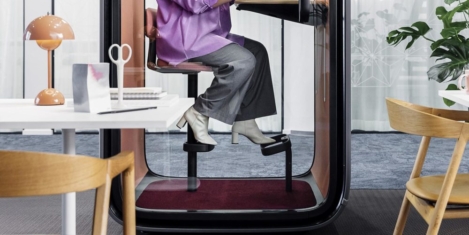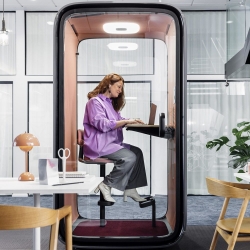To provide the best experiences, we use technologies like cookies to store and/or access device information. Consenting to these technologies will allow us to process data such as browsing behaviour or unique IDs on this site. Not consenting or withdrawing consent, may adversely affect certain features and functions.
The technical storage or access is strictly necessary for the legitimate purpose of enabling the use of a specific service explicitly requested by the subscriber or user, or for the sole purpose of carrying out the transmission of a communication over an electronic communications network.
The technical storage or access is necessary for the legitimate purpose of storing preferences that are not requested by the subscriber or user.
The technical storage or access that is used exclusively for statistical purposes.
The technical storage or access that is used exclusively for anonymous statistical purposes. Without a subpoena, voluntary compliance on the part of your Internet Service Provider, or additional records from a third party, information stored or retrieved for this purpose alone cannot usually be used to identify you.
The technical storage or access is required to create user profiles to send advertising, or to track the user on a website or across several websites for similar marketing purposes.
 Research from Asana shows that three quarters (75 percent) of UK knowledge workers experienced burnout in 2021. Perhaps even more concerning is that over a third (36 percent) of workers believe burnout is inevitable to career success. This worrying and unsustainable trend shows that for many employees, constantly checking email, working weekends, and burning out seems to be the best way to show their value at work. (more…)
Research from Asana shows that three quarters (75 percent) of UK knowledge workers experienced burnout in 2021. Perhaps even more concerning is that over a third (36 percent) of workers believe burnout is inevitable to career success. This worrying and unsustainable trend shows that for many employees, constantly checking email, working weekends, and burning out seems to be the best way to show their value at work. (more…)








 The modern world seems geared to help us avoid boredom. But there’s a problem. Artists have long recognised that boredom can drive creativity. The great Italian writer-philosopher Giacomo Leopardi described boredom as “the most sublime of all human emotions because it expresses the fact that the human spirit, in a certain sense, is greater than the entire universe. Boredom is an expression of a profound despair at not finding anything that can satisfy the soul’s boundless needs.”
The modern world seems geared to help us avoid boredom. But there’s a problem. Artists have long recognised that boredom can drive creativity. The great Italian writer-philosopher Giacomo Leopardi described boredom as “the most sublime of all human emotions because it expresses the fact that the human spirit, in a certain sense, is greater than the entire universe. Boredom is an expression of a profound despair at not finding anything that can satisfy the soul’s boundless needs.” 


 At the 1983 International Design Conference in Aspen, Steve Jobs delivered a speech addressing the theme of the conference; The Future Isn’t What It Used to Be. In it he set out his thoughts on new technology, intuitive design, personal computing as well as the need for a constantly evolving idea of what the future will look like, including the future of work.
At the 1983 International Design Conference in Aspen, Steve Jobs delivered a speech addressing the theme of the conference; The Future Isn’t What It Used to Be. In it he set out his thoughts on new technology, intuitive design, personal computing as well as the need for a constantly evolving idea of what the future will look like, including the future of work. 
 You probably saw that meme based on an article in the
You probably saw that meme based on an article in the 




















June 9, 2022
How I learned to stop worrying and embrace uncertainty
by Mark Eltringham • Comment, Flexible working, Technology